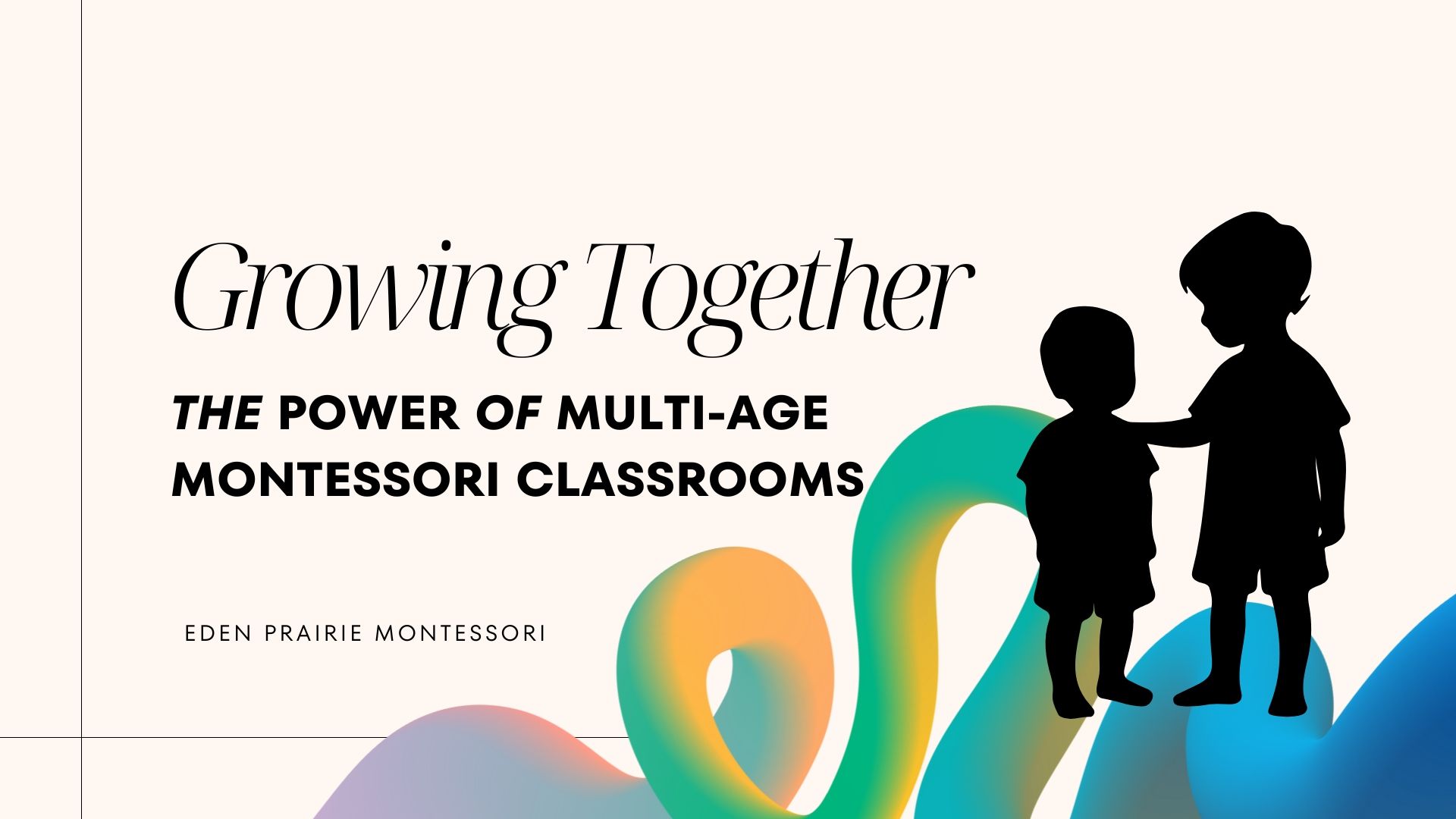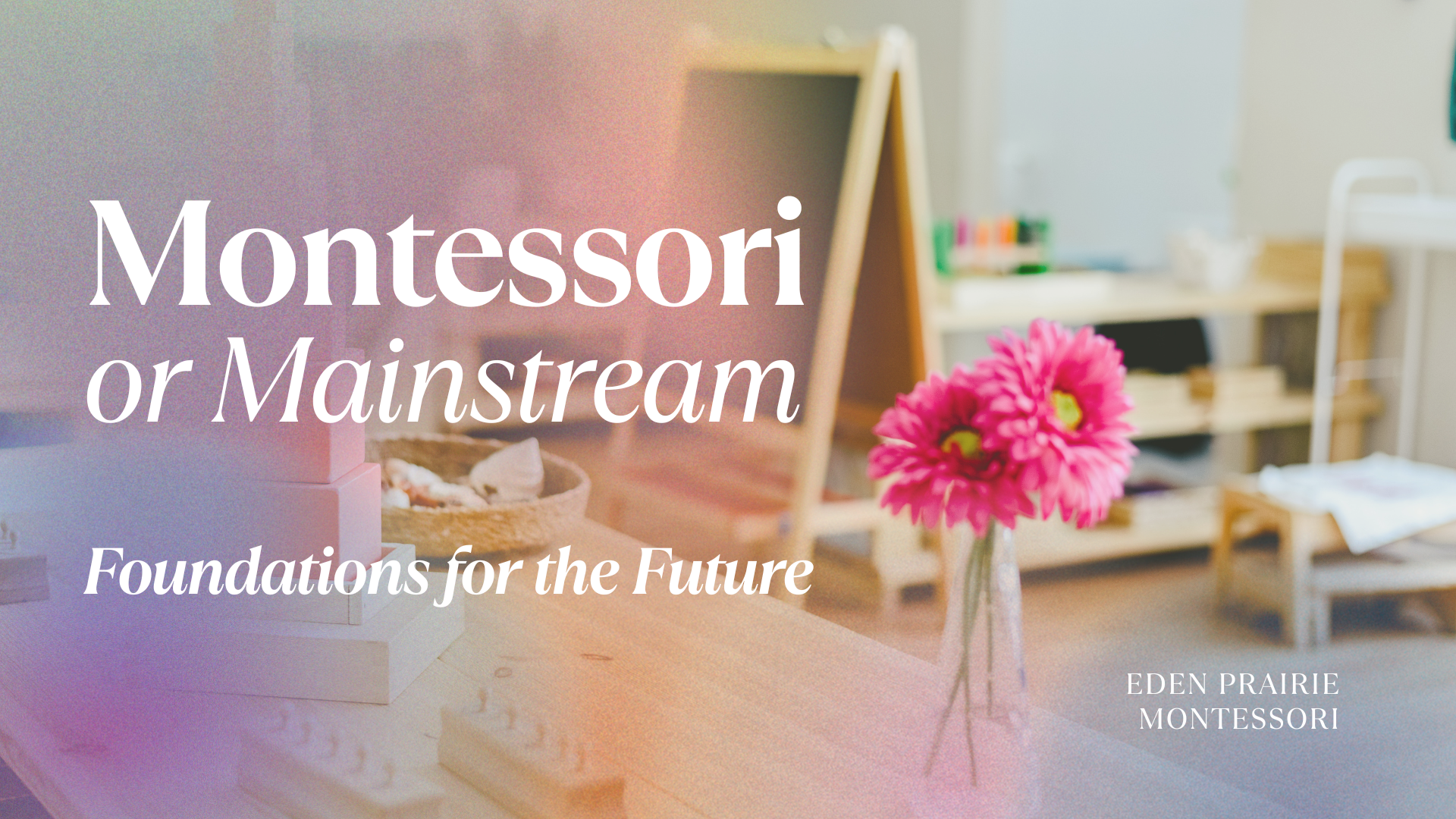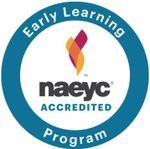Eden Prairie Montessori Learning Blogs
The Magic of Play - Unlocking Your Child’s Potential with Montessori...
Unlocking Your Child’s Potential with Montessori...
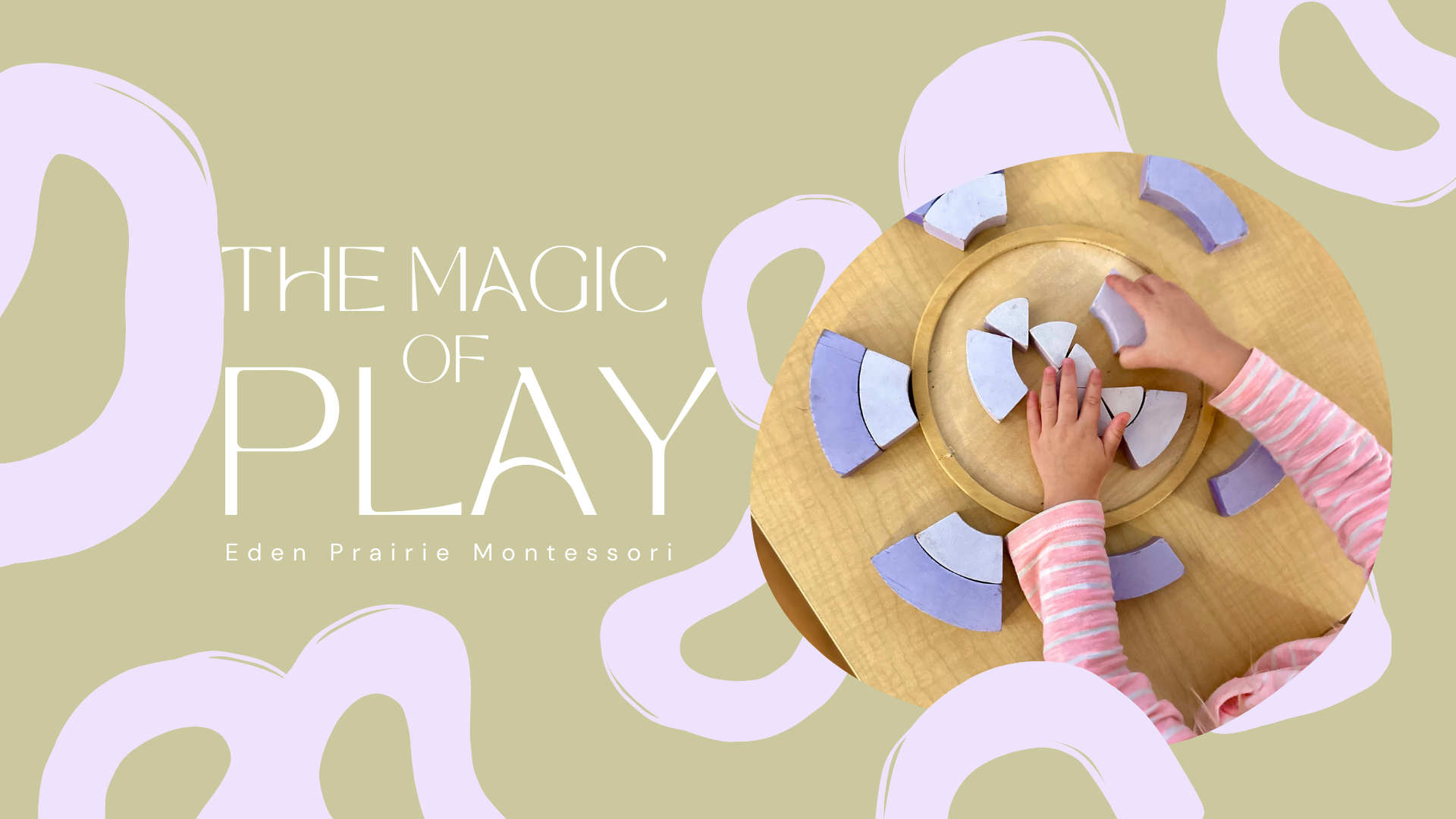
In the early years, play is so much more than just a way to pass the time—it’s a powerful tool for growth and discovery. In Montessori, play takes on a unique and transformative role in supporting children’s natural drive to explore, learn, and grow emotionally. Montessori education is known for its hands-on, child-centered approach where play is not just encouraged, it is considered essential for developing curiosity, resilience, independence, and social skills.
Follow along as we discover how unstructured play unlocks your child’s potential and fosters lifelong learning...
Understanding Montessori’s Approach to Play
In a Montessori setting, the concept of play is woven deeply into the educational fabric. Montessori emphasizes the idea of “purposeful play”—a blend of unstructured exploration and structured activities designed to captivate a child’s curiosity and encourage self-directed learning. Unlike traditional education systems where play might be reserved for recess, Montessori allows children to freely engage with activities and materials in a way that feels like play but is, in fact, purposeful and constructive.
Dr. Maria Montessori observed that children naturally gravitate toward activities that foster growth and development. She believed that, when given the freedom to choose and explore, children are naturally drawn to experiences that help them understand their world and themselves.
At Eden Prairie Montessori, we believe that a rich and engaging learning environment is essential for children's holistic development. Our classrooms are designed to inspire curiosity, creativity, and critical thinking. By providing a variety of hands-on activities and experiences, we empower children to become confident, independent learners.
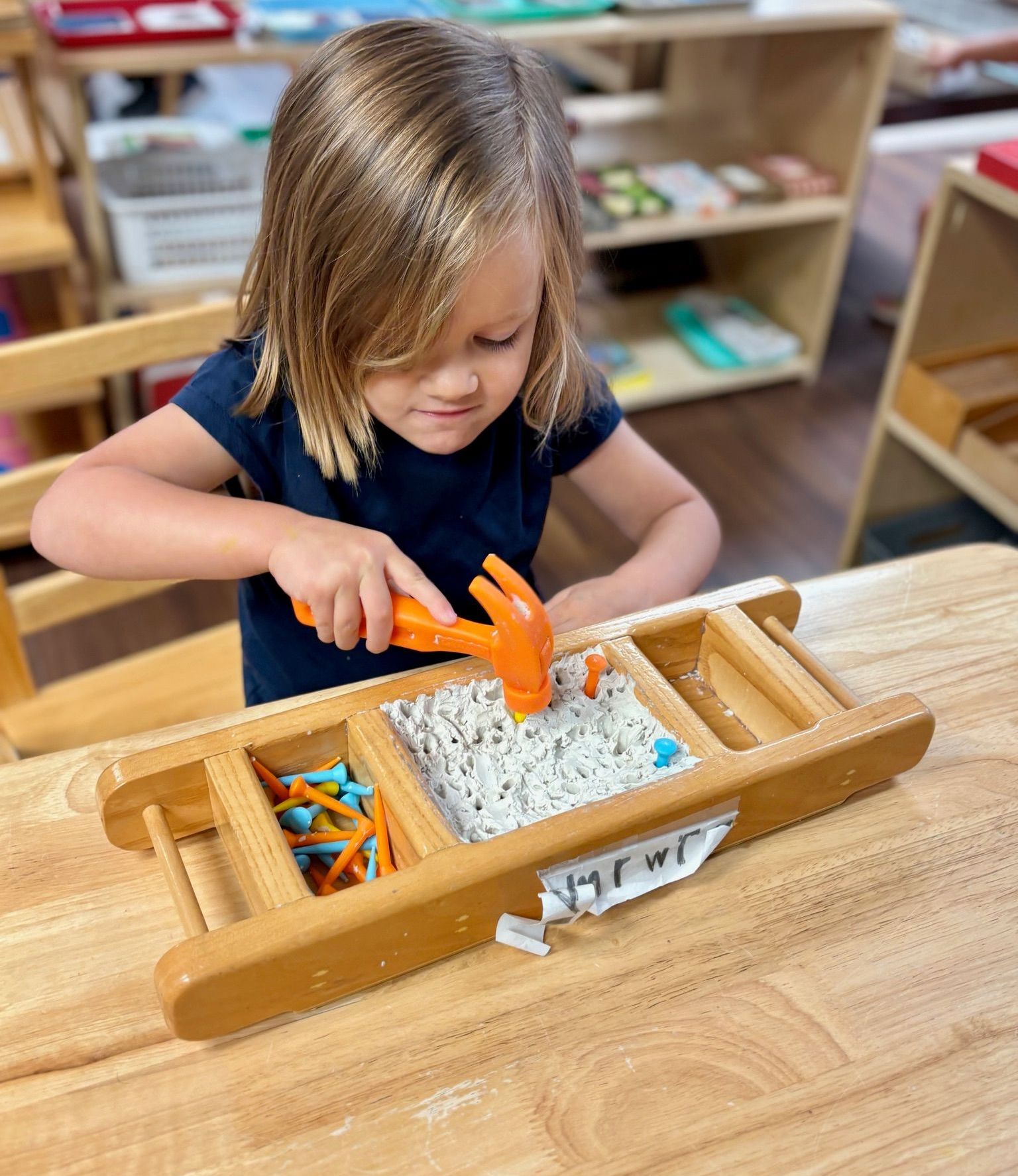
The Power of Unstructured Play in Montessori
Unstructured play is a core element of Montessori’s philosophy. This type of play is child-led, giving children the freedom to create, imagine, and explore without the pressure of specific goals or structured activities. Here’s how unstructured play contributes to a child’s development within the Montessori environment:
1. Encourages Creativity and Imagination
Unstructured play allows children to experiment and discover in their own way, fostering creativity and imagination. When children are free to explore without strict instructions, they learn to think independently and come up with their own ideas. For example, a simple set of wooden blocks can become a castle, a car, or even a rocket ship in a child’s mind. This creative freedom allows children to develop problem-solving skills and divergent thinking, which are essential for adapting to new situations as they grow.
2. Promotes Emotional Growth and Resilience
Play is not only about developing cognitive skills—it also plays a crucial role in emotional development. During unstructured play, children encounter challenges, face minor setbacks, and learn to navigate their feelings. In a Montessori classroom, if a child is building a structure and it falls, they’re encouraged to try again or find a new approach, developing resilience and self-confidence.
By allowing children to experience and process a range of emotions in a safe environment, children become more emotionally aware and adaptable. They learn patience, frustration tolerance, and the joy of success through their own efforts, developing a sense of inner strength and independence.
3. Supports Social and Communication Skills
One of the beautiful aspects of Montessori environments is the mixed-age classroom, which naturally encourages cooperative play and social interaction. Through unstructured play, children learn the art of negotiation, empathy, and conflict resolution. They discover how to share, collaborate, and communicate their ideas, all of which are essential for forming meaningful relationships.
In these social interactions, older children often take on mentorship roles, helping younger ones learn new skills and tasks. This not only reinforces what the older children have learned but also creates a supportive, empathetic community where each child feels valued and understood.
4. Enhances Focus and Independence
Montessori classrooms offer children the freedom to choose activities that interest them, which nurtures a sense of independence. By engaging in self-directed play, children develop intrinsic motivation and the ability to focus on a task without external rewards or prompts. A child may spend a significant amount of time on a particular activity, refining their skills, and learning at their own pace.
Through independence and sustained focus, children feel a sense of accomplishment as they take pride in completing activities by themselves. Montessori’s emphasis on “control of error” also enables children to self-correct, giving them confidence in their abilities and encouraging a lifelong love of learning.
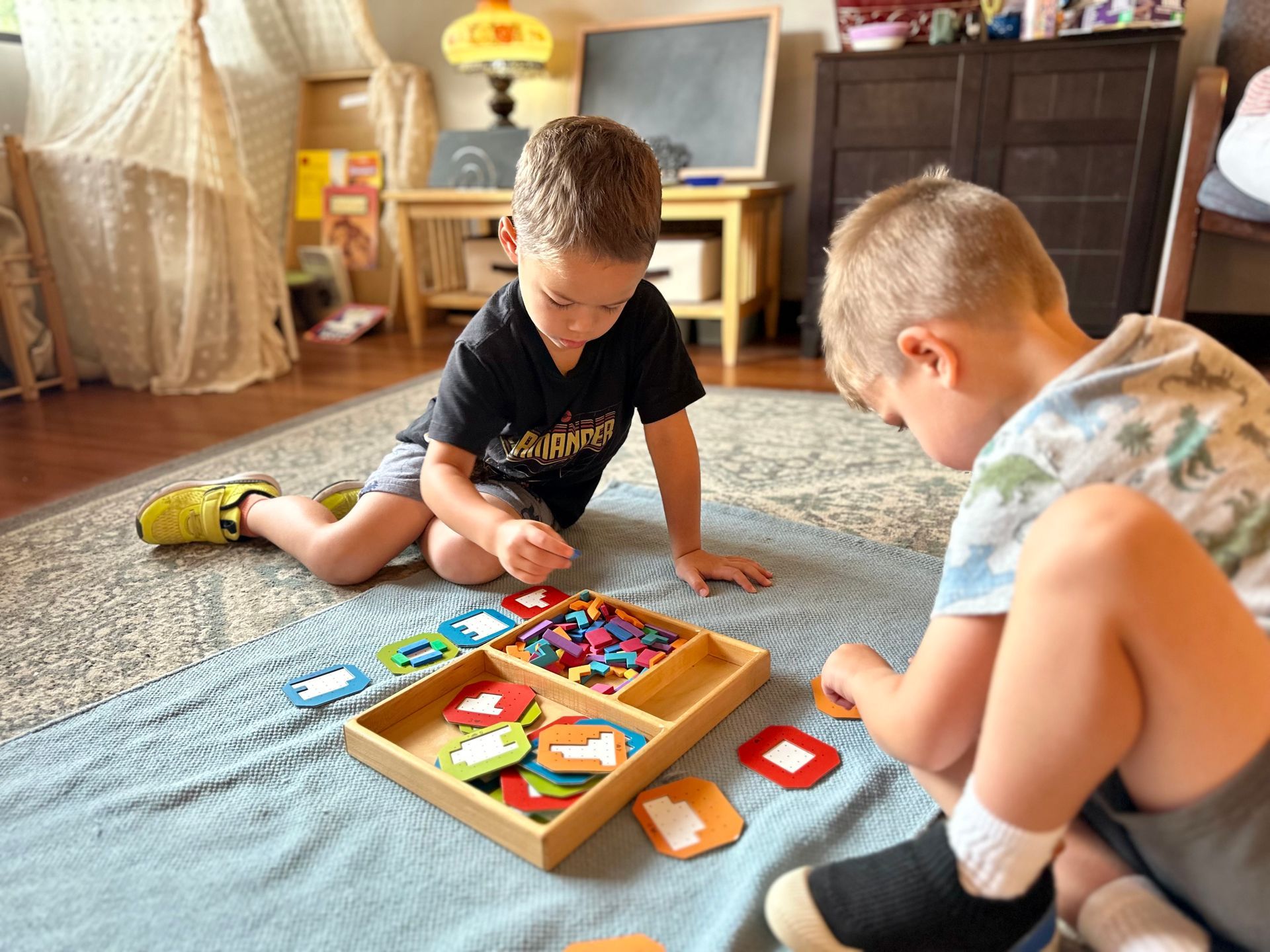
How Montessori Materials Inspire Meaningful Play
In Montessori classrooms the materials are thoughtfully designed to inspire curiosity and exploration. They are usually made from natural materials, like wood, glass, or metal, and are designed to be hands-on and self correcting, which means that children can discover and correct their own mistakes through play. For example:
- Sensorial materials (such as cylinders and color tablets) allow children to refine their senses by exploring textures, colors, shapes, and sizes.
- Practical life activities (like pouring water, buttoning, or tying) teach children real-world skills through playful engagement.
- Mathematics materials (such as bead chains) turn abstract concepts into tangible objects that children can manipulate, making complex ideas accessible through hands-on learning.
By offering children a variety of materials that are both stimulating and self guiding, Montessori environments encourage children to learn through trial and error and build their confidence in problem solving.
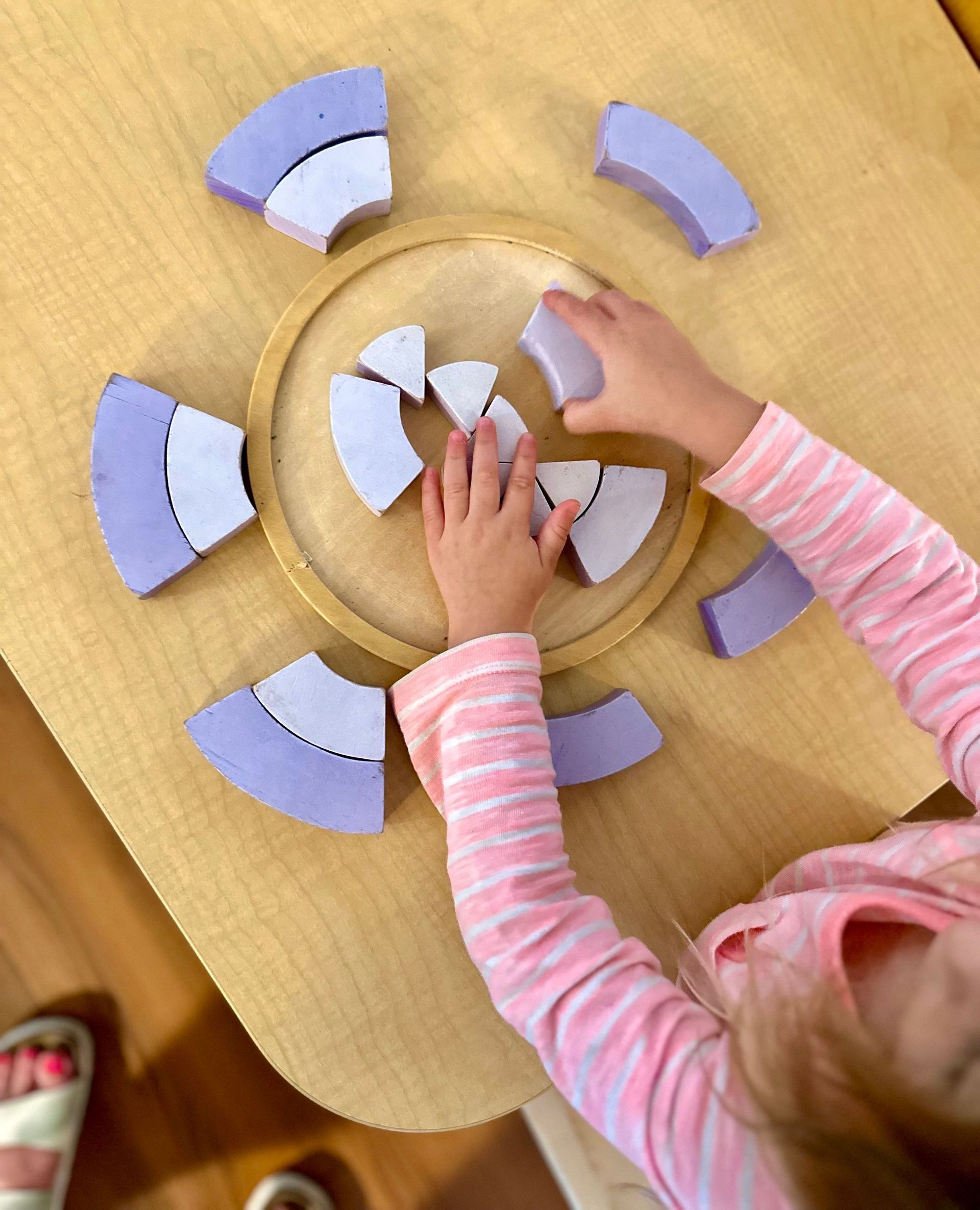
The Long-Term Benefits of Montessori Play
The magic of Montessori play doesn’t just benefit children in their early years; it sets the stage for a lifetime of curiosity, resilience, and independent thinking. They develop a love for learning that often translates into academic success and a strong sense of self-efficacy later in life. They learn to value their own ideas, trust their instincts, and approach challenges with curiosity rather than fear.
Research shows that children with a Montessori education tend to exhibit strong executive functioning skills, such as impulse control, flexible thinking, and emotional regulation—all of which are critical for personal and academic success.
Tips for Incorporating Montessori Play at Home
Even if your child isn’t enrolled in a Montessori school, you can incorporate Montessori-inspired play at home. Here are some simple tips:
- Create a Prepared Environment: Set up a space with child-sized furniture and easy access to toys, books, and materials. Keep this area organized, so children can choose and put away items on their own.
- Offer Open-Ended Toys: Look for toys that allow for unstructured play, like wooden blocks, puzzles, and art supplies. Avoid toys that have a single use or outcome.
- Encourage Practical Life Activities: Involve your child in daily tasks such as cooking, gardening, or cleaning. These activities can be fun and teach real-life skills!
- Give Children Time and Space to Explore: Avoid overscheduling and allow children to play without interruption. Let them immerse themselves in their activities without imposing time limits.
- Be a Guide, Not a Director: Follow your child’s lead and let them explore at their own pace. Offer gentle guidance only if they seek it, trusting that they’ll discover and learn on their own.
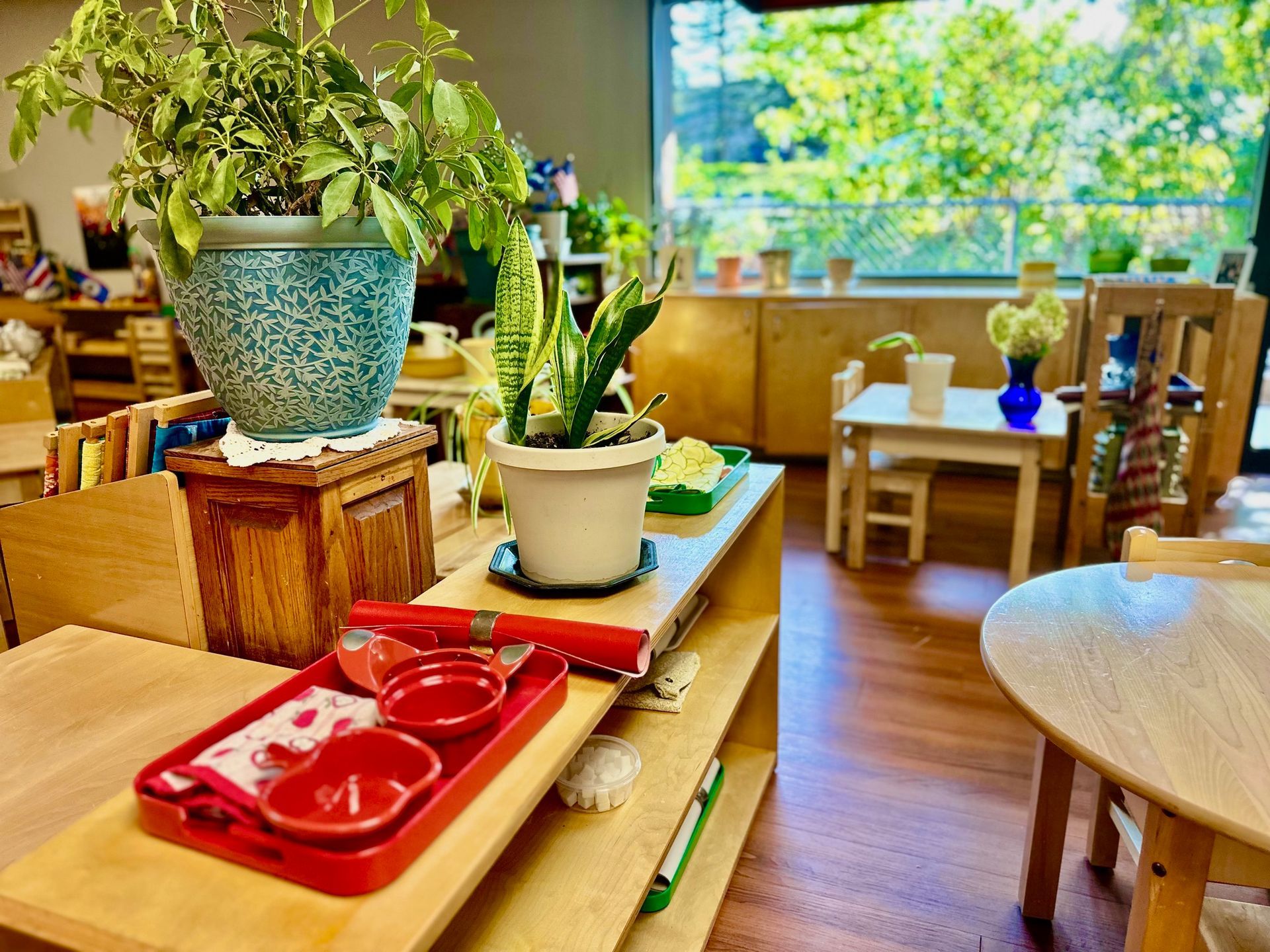
Embracing the Joy of Play
The Montessori approach transforms play into a magical journey of exploration, learning, and growth. When children are given the freedom to play, they naturally cultivate creativity, resilience, and emotional intelligence. By embracing this approach, parents and educators can help children unlock their potential, cultivating a deep love of learning that lasts a lifetime!
Montessori play is a reminder that sometimes the most profound learning happens in the simplest, most joyful moments of exploration.
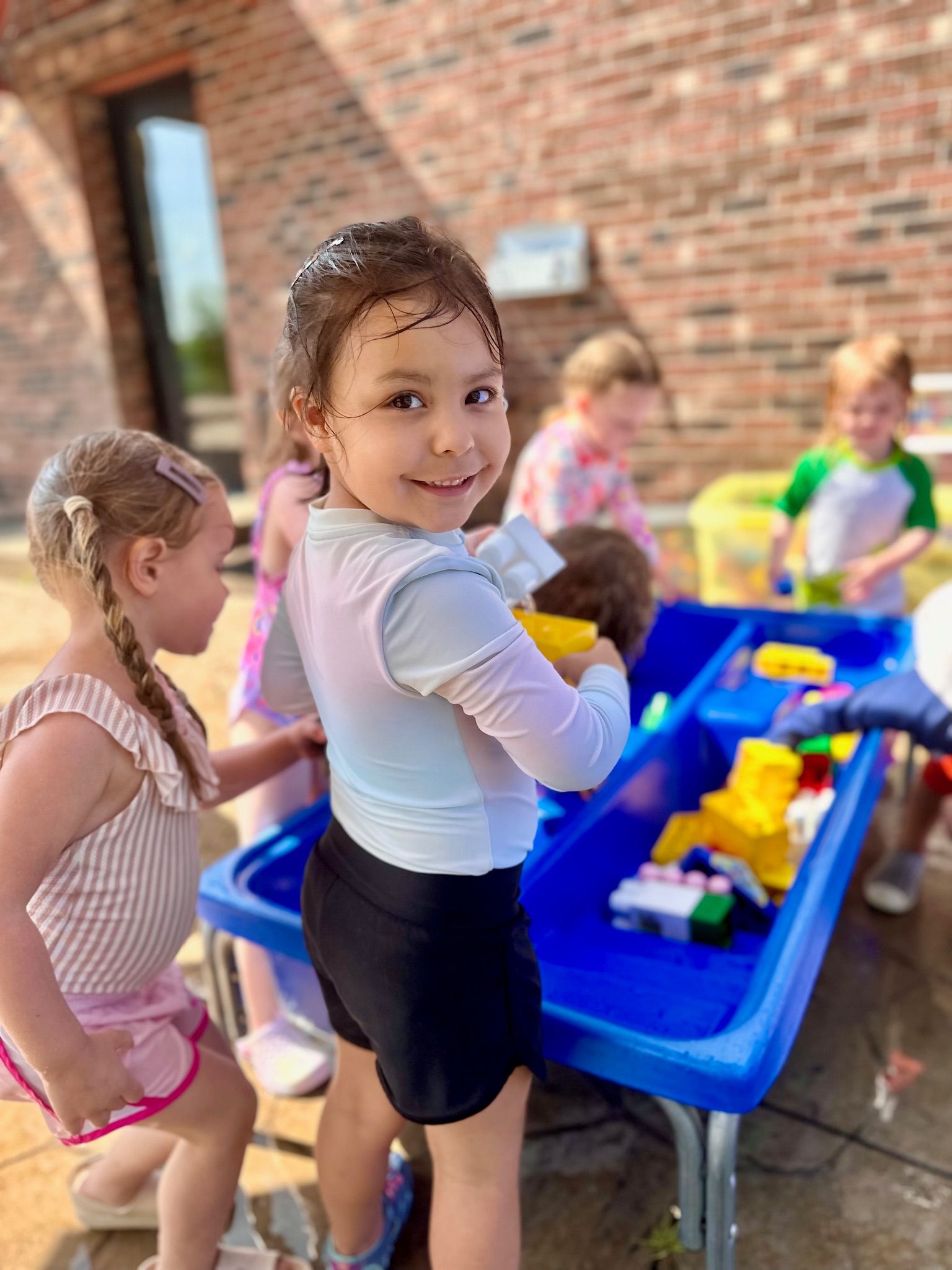
Come Play at Eden Prairie Montessori!
Unlike traditional teaching methods, the Montessori method gives children more independence to learn at their own pace and be active in their own knowledge-gathering. Children who learn through this method are shown to be more independent and inspired, often eclipsing students who go the more traditional route.
We Provide A Safe and Nurturing Space...
Eden Prairie Montessori classrooms are designed to be safe, welcoming, and conducive to learning.
- Child-Centered Approach: Children are at the center of the learning process, and activities are tailored to their individual needs and interests.
- Positive Reinforcement: Teachers provide positive reinforcement to encourage children's efforts and accomplishments.
- Respectful Interactions: Children learn to respect themselves and others through positive social interactions.
“Parents learn just like their children do: by seeing and by doing. That’s why we welcome interested families to visit Eden Prairie Montessori while school is in session. Observing our beautiful school, our fun playground, our happy children and their proud presenters – it’s the best way to see what we do!”
If your child is ready to start becoming the best person they can be, you are welcome to schedule a tour of Eden Prairie Montessori with Shonali at your side to answer any questions you might have. You can always reach her at (952) 944-8466 or info@epmontessori.net



